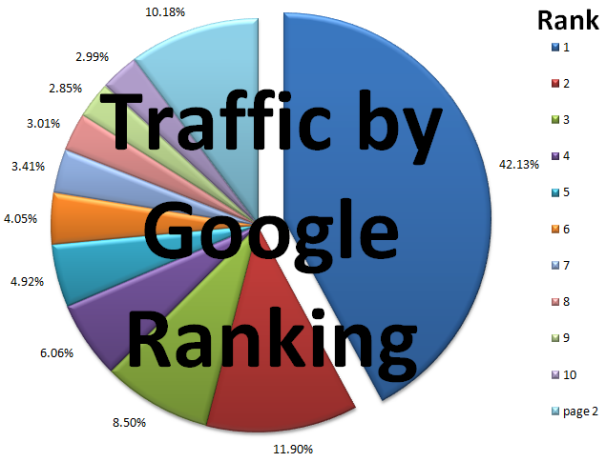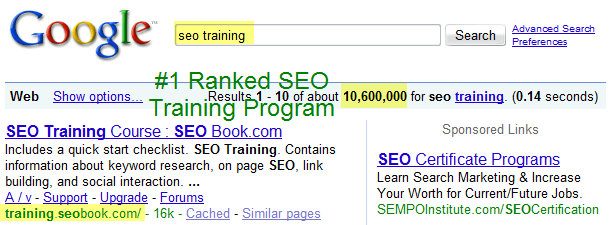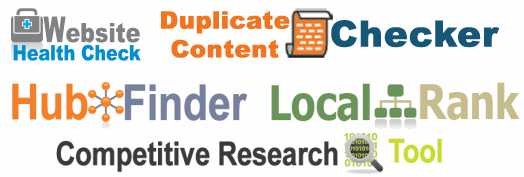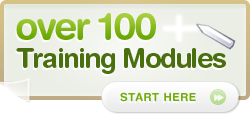Day 9: Why Most Online Businesses Fail
The Business Failure Curve
The failure curve for small business has been rather predictible. In fact, in a NYT article Scott Shane compared the survival curves from 1977-1988 & 1989-2000. They roughly mirrored each other! Less than 1/2 of small businesses live to see the age of 5.
But the cost of failure has dropped as technology & communications costs have dropped to almost nothing. Starting a web business is virtually free!
- Registering a new domains only costs $8.
- Starter hosting can be had for a few Dollars a month.
- Wordpress is free to install on your server.
- 99designs allows you to pick a logo for as little as $99.
- ThemeForest lets you pick premium themes for as little as $20, and there are thousands of free themes to chose from as well.
All these deflationary pressures that lower risk & the need for start up capital should make it easier to be successful, right?
Not in my opinion.
Because it is easier to start it is also easier to fail. There is more competition today than ever. And tomorrow will be more competitive than today is.
If an updated curve appears from, say, 2005-2016 my guess would be that the failure rate is even higher.
Why?
Online we are moving away from the economics of scarcity to the economics of abundance.
It means it is easier to start a business at lower cost.
Which lowers the perceived risk.
But distractions are plentyful.
And one thing is scarce online.
Growing scarcer daily.
Attention.
Competition
There are no public stats on how many SEOs are millionaires, but if you asked me to guess I would put the number well into the thousands rather than the 100s. And some of the ones that are quite profitable heavily reinvest in growth. If you are starting out today you are behind them in terms of:
- rankings
- data
- capital & cash flow
- experience
- relationships
- network effects
- etc.
Every day you sit on the sidelines is another day the leaders have to accumulate resources.
Worse yet the sea of competition grows daily. Until we began pruning some accounts, this site had over 850,000 registered users. If this website was a city, it would be one of the 50 largest cities in the United States.
Amongst this sea of competition, the biggest risk you have when starting a new website is not some new Google penalty, but rather perpetual obscurity.
Most people who are paying recurring fees for a shopping cart make nothing:
I work for a large e-commerce provider (think Volusion, Magento, Bigcommerce, Shopify – one of them). The median store revenue per month across all our paying clients is $0. It’s more likely that you’re paying us money for nothing than that you’re making money from your store.
That is the story of most would-be startups — going nowhere fast.
In the search game the top few win the spoils.

There isn't much difference between page 3, page 30 & page 300: they are all effectively invisible.
Dumb Luck / Accidental Success
My first profitable website was one where I was too clever (and perhaps too stupid?) for my own good.
In early 2003 I registered the domain name 1emallway.com. It was supposed to be a clever spin on being a street address and an online address. It was also intentionally broad because being naive and greedy I thought I could make money using affiliate links for "everything." ;)
I thought I was brillant and original. But, as it turns out, I was 0 for 2.
The only reason that site ever made any mone was because a.) I was a bad speller & b.) the search engines were not very sophisticated about correcting spelling errors. I misspelled the name of an online casino and was one of only a few webmasters who had done so, landing me numerous multi-thousand Dollar checks for being fairly incompetent.
Today search engines are *much* better at correcting misspellings. Google also promotes sending users on a guided path with their Google Instant, which tries to complete your search query for you. Further, gambling is a much more saturated market & online gambling is now illegal in the United States.
Failure vs Learning Lessons
Only through gaining experience do you learn humility & to accept how little you know. And that keeps you learning.
That 1emallway wasn't anything with lasting potential, but I kept learning. Later on in 2003 I went to an SEO conference and heard the term "search marketing" and it was promoted as being what was going to become "the" phrase for our young industry. So I registered searchmarketing.info and search-marketing.info.
Unaware of branding (or that the .info domain extension would soon largely become associated with spam due to years of 99 cent registration specials) I chose the hyphenated domain over the non-hyphenated domain.
As if that wasn't bad enough, I chose RegisterFly as my domain registrar. They later became famous for charging you for renewing your domain names without actually doing so, and rather 'investing' in liposuction & hookers.
Here is a typical complaint highlighting their customer experience:
I am a single mom of two. My husband left me with nothing five years ago, instead of giving up which I felt like doing I started my own company and have been sucessful for five years, supported my children FOR Five YEARS ON MY OWN. Registerfly has single handedly destroyed my business. Today I lost my last large client. They all walked due to what they say Is MY fault. I can not renew, transfer or host thier domains. These are million dollar companies that are well known and now the names have expired. I am now being sued by them. Well goodbye house, goodbye car, goodbye life! Thank RegisterFly.
10 Rules For Success
Those were pretty bad errors, but I was able to recover from them because I was a voracious reader & got involved with some communities that made a difference. The SearchGuild site that I cut my teeth on back then is no longer around, but there are a lot of other great sources to learn from today. Part of the reason we work so hard on this site is to pass it forward. :)
The keys to success, IMHO are...
- avoid debt whenever possible
- pick a market you can win
- pick honest mentors
- create your own value systems
- work longer, harder & faster than the other guy, and try to connect with others
- value your time
- if something is working keep investing in it until the returns begin to diminish
- fully invest early profits into growing quicker & learning faster
- track what you are doing
- do not let excuses prevent you from getting something done today
Lets go over these real quick!
Avoid Debt
"Debt is an ingenious substitute for the whip and chain of the slave driver." - Ambrose Bierce
Debt is a claim on your future labor, with interest. If lending rates are low debt can be a seductive force because you don't have to pay for it until "later," but you don't know what will happen down the road. Markets shift in uncertain ways. This is true both within your market & the broader economy. If interest rates rise faster than your income does & you can't service the debt you are hosed. Even if interest rates drop, if that happens during economic weakness that also leads to you losing your job, you are still hosed if you are in debt.
When I got started online I got a job that I didn't want so that I would be able to fund my online education. Further, when I was doing ok online I moved into a mobile home so my monthly living costs were under $500. This enabled me to take risks that would not have been reasonable if I had more debt and a higher living expense. And I kept living well below my income from then on, as it allowed me to take greater risks & invest faster into growth.
If we learned nothing from the trillions of Dollars of losses, destroyed retirement accounts, and massive currency debasement caused by every flavor of financial fraud in the book (appraisal fraud, mortgage fraud, securities fraud, rating fraud, foreclosure fraud, etc.) coupled with the failure of market regulation, big bailouts & the lack of jailtime for the executive banking class, we should learn this at a minimum: bankers are not to be trusted.
It doesn't matter if a banker is honest. Gresham's dynamic will drive honest folks under as the people committing fraud keep buying political influence & marketshare.
- Bad money drives good money out of the market.
- A bank that doesn't commit accounting fraud to show extra growth & boost their share price gets bought out by a larger & more corrupt bank ran by individuals willing to commit fraud to get ahead.
- Cheap Chinese milk with melamine in it makes real milk less profitable (or unprofitable) to create.
Once you go into debt you are handing over control of your life to someone else. Fear of not being able to pay your debts will prevent you from taking profitable risks (and may force you to take some bad ones).
Carl Sandburg said it best in The People, Yes "and in the best, you never know whats coming next, even if it's hokum ... Anything can happen in this sweepstakes. Around the corner might be prosperity or the worst depression yet."
Pick a Market You Can Win
In my earlier 1emallway example (I cringe every type I type it out or think about it) I was virtually guaranteed failure because my ambition far exceeded my talent or budget. After a month of playing online how exactly was I going to be the king of ecommerce (with no marketing budget to boot)? :)
Even within the small market of "SEO" there are people focused on positioning as local SEO experts, international SEO experts, SEO experts for a specific type of business (like real estate), link building experts, SEO experts leveraging public relations, video SEO experts, etc. If a market is too competitive you can always go tighter. My angle off the start was to be one of the first SEOs leverage blogging and to use that platform to push an ebook. The idea of selling an ebook had 3 benefits:
- since SEO books were seen as commodities the domain name was available for only $8, while still being short and memorable
- since the field of SEO constantly changes, the idea was to sell an ebook at a premium on the basis that people got updates and it was more current than print books
- each update not only helped customers, but acted as free marketing for our brand, since our customers would often mention the updates
The idea of "using a blog" isn't particularly unique today, as there are 10,000's of blogs covering SEO. But the idea was unique back then, and there are equivalent angles and ideas you can use today.
Smaller markets are easier to rank it (since they have less competition), cost less to rank in (since they have less competition), and it is easier to create relevant partnerships. The person who sells custom bowling gloves can partner with bowling ball manufacturers, sports stores, etc. Whereas the person who wants to own the category of "sports" is going to need to have deep pockets to spend on marketing.
You don't want to go to such a small niche that there no market though. Rather, one should look for ways to create a complimentary position.
Pick Honest Mentors
One could have a long & convoluted set of filters, but on this front mine is pretty simple.
- If you hear phrases like "make money online" "business in a box" "silver bullet" "automated wealth generation" "pure content" etc. then they are likely optimizing their sales pitch to rip off desperate newbies. Many of those folks come up with a scammy sales angle and then make a half assed product based around the sales pitch.
- Originally the video to the right was about a "product" the FTC fined Frank Kern for, but they complained & got it removed from YouTube.
- We replaced it with an even better video, about a "rock bottom blueprint" that is for "anyone." It promotes a real estate investment strategy that has allegedly been profitable for 13+ years, even through the bubble period AND the real estate crash.
- Anyone who suggests you take on debt to work with them is likely knowingly selling you down the river. Here is a typical boiler room sales script [PDF] which includes tips like: "Find more pain if needed spend time here (everyone has pain it’s your job to find it)."
- Anyone who relies heavily on launch sequences with false scarcity is likely knowingly selling you down the river.
- If a person only shares "information" when they are selling something they are likely just salesman, rather than a mentor.
- Rely on your own experience. If someone says something that matches your own experiences then it is likely safe to trust them more. If multiple people that have earned your trust recommend something, then it is probably a safe bet.
Pick the wrong mentors is an easy way to wind up broke (or worse).
Here is a video of Ellery Bennett promoting how rich, successful & happy he was. But he was trying the sell the dream and was getting sucked dry by other "sell a dream" marketers.
Within 2 years of that video being released tragedy struck as he had over a half million Dollars of debt, his wife filed for divorce, and he murdered her.
Create Your Own Value Systems
"It is difficult to get a man to understand something when his salary depends upon his not understanding it." - Upton Sinclair
Existing value systems are created to support the business models of established businesses. As Eric Schmidt says, lobbyists write the laws. Google later announced they hired A DOZEN new lobbying firms!
From a practical standpoint this has a couple fundamental business points to consider.
- To create success your narrative often has to be counter to whatever the existing market believes. Excite.com turned down buying Google for under $1 million. Google was a success at search largely because everyone else was trying to pump pageviews to sell banner ads & viewed search as a loss leader. I was able to buy the domain name SeoBook.com in 2003 for $8 precisely because others failed to appreciate its value. The concept of a book about SEO seemed like a bad idea to many because search keeps changing.
- If you are successful with the creation of your own value systems it will piss some people off. This is because many established competitors will fear you. When I got started online there were attack threads created where I had to defend myself against the attacks of a dozen industry 'experts' who joined together to try to topple me. Another SEO who wrote an ebook told me they experience the exact same thing.
- Many people are afraid to look/be/act different. I think this is a mistake. Being inauthentic wears thin on your self esteem and makes you feel fake. Other people like you are attracted to what makes you unique, and those are the people who are most likely to help spread your marketing message for you. A mentor once told me "I think the best brands, the best sites have a large portion of their founders personality in them. Never be afraid to be yourself, after all there are 1/2 billion people on the www, not all of them have to agree with you. Concentrate on the ones that share your views, concentrate on making their experience the very best it can be, the rest forget them. Or to put it another way, the best sites say - this is what we do, this is how we do it, if you don't like it go somewhere else."
Longer / Harder / Faster + Connecting
There are 3 big benefits of starting off from scratch:
- You do not have a lot of things that you "have to do" everyday, like customer service for hundreds or thousands of people.
- You are hungry & are willing to do things others are not willing to do.
- Lack of experience means that you might be naive enough to set ambitious goals that you would have never made after you knew more.
Through deeply focusing on specific areas you are interested in, you can do a month of learning in a couple days. As long as you express your own voice & push hard on doing what you are good at eventually someone will notice. However don't wait for the market to take notice on its own. You need to reach out and connect with others, participate amongst the people you want to know and be known by. A good quote from Abraham Lincoln: "Public sentiment is everything. With public sentiment, nothing can fail. Without it, nothing can succeed."
Keep in mind that no matter what you do, some of it will not be fun. After all, the reason people typically pay you is because they are asking you to do something they do not want to do (or can't do). That said, people are generally more likely to buy from people they empathize with.
A more modern version of Abe's message comes from Radiohead's Meeting People is Easy DVD: "If you have been rejected many times in your life, then one more rejection isn't going to make much difference. If you're rejected, don't automatically assume it's your fault. The other person may have several reasons for not doing what you are asking her to do: none of it may have anything to do with you. Perhaps the person is busy or not feeling well or genuinely not interested in spending time with you. Rejections are part of everyday life. Don't let them bother you. Keep reaching out to others. When you begin to receive positive responses then you are on the right track. It's all a matter of numbers. Count the positive responses and forget about the rejections."
(Under)Value then (Over)Value Your Time
The biggest risk to new online businesses is perpetual obscurity.
And the web can be a lonely place for a new entrepreneur.
Off the start I think it helps to under-value your time & try to reach out and help as many people as you possibly can. That can be wasteful, but even so it will give you the feedback and interaction and momentum and confidence needed to keep doing better. It will also help you find what you are good at & where you should focus.
However, if you do a good job of it then over time you will create more demand than you can possibly accomodate. At that point you need to use economic principals to help balance supply & demand. Allow people to pay for access while limiting access to those who have not paid.
Further, once you have enough capital to use it as a tool, it can make sense to hire others to help out with various aspects of your business. No matter how good you are there is a limit to how much you can do by yourself, and working with others should allow you to create greater profits.
After you get to a certain level of success, sometimes it also helps to have a couple different businesses and a couple different revenue streams. Doing so lowers your overall risk profile & forces you to value your time, as if you are selling it at below market rates the other businesses will do better.
Reinvest Until it Stops Working
Most investors under-perform the stock market because they are clouded by their emotions & make irrational decissions. Those who succeed might also lose money on most their trades. The key to success is riding winners until they stop working. Sophisticated stock traders use trailing stop losses to force them out of trades while locking in most of their profits.
Likewise with marketing, it can feel like you need to stop doing x because you have already done it before. However, rather than trying to guestimate when it stops working, you are better off reinvesting until the returns stop coming in: ride the entire growth cycle.
Many value systems spread then die. Many markets are born then die as they are replaced by more efficient technology. Likewise many marketing techniques spread and then die.
"On a long enough timeline, the survival rate for everyone drops to zero" - Tyler Durden.
Fully Invest Early Profits into Growing Quicker & Learning Faster
One of the paradoxical tricks of the web is that almost everything is available for free.
But some things are only made available for free by valuing your time at nothing.
If I could take my current knowledge back to 2003 I might not end up being a billionaire, but I would certainly have made hundreds of millions. But opportunity and time head in one direction, so take advantage of whatever advantages you have and fully leverage them TODAY. :D
If someone can help you save a week or a month or a year of your life that has exceptional value. Likewise, if a software program saves you a few hours a week it is valuable. And if a professional service makes you look more credible then it can be a cheap investment into your longterm growth.
- our first web design was a free template
- next came a $99 logo & me hacking away at the CSS of the free template to color match the minimalistic theme to match the logo's colors
- our next site design cost $1,500
- our most recent design was around $7,000
Each of the above choices was both rational and appropriate given our resources & scale at the time. If you have nothing then you sorta have to make due with what you have, but as you gain resources it makes sense to reinvest.
Track What You are Doing
If you are not using web analytics you are flying blind.
It might seem like you are being altruistic & only want to do what you are interested in to decide that you do not need to track, but if you track how you are performing you learn what the market cares about and what it wants. You can bake this into virtually every aspect of your business:
- We use web analytics to track conversions
- Our blog posts have comments on them, as does our monthly newsletter.
- If customers decide to cancel with us we send them a survey to ask how we can make the service better.
Do Not Let Excuses Deter You
If you wait until you are perfect before you start you will never get started, precisely because as you learn more you apppreciate how little you know.
You do not need to be a Michael Jordan to be successful. When I look back at my early work I am anything but impressed by it, but if I would have waited until I know what I know now I never would have had the chance to learn so much & gain so much experience.
Every day make a list of things to do, and every day make sure you scratch off at least 1 item.
Is There Any Opportunity Left Today?
It is easy for a person reading this to say "well you only got where you were today because you got lucky." I would be hard pressed to disagree with that. But since I got into search, many "experts" who were at the top of the game have fallen off the cliff.
The good news is that successful people get complacent. Stuck in their ways. Which is why business has a water cycle to it.
People claimed the death of SEO in 1997, 1998, 1999, 2000, 2001, and 2002.
In 2003 I got started online and in the field of SEO, and people claimed that the Google Florida update would kill SEO. I took that as an opportunity to learn, to explore, to write, to gain exposure, and to gain marketshare.
Blogging was new back then, and it was another piece of my "dumb luck" strategy. I noticed that people who wrote blogs were getting a disproportionate share of inbound links. Rather than complain about it, I said "hey I can do that too!"
I was paying attention to how the web was changing & leveraging new channels and new technologies to catch up, so maybe some of the luck wasn't so dumb after all.
In the years since there has been a major claim of SEO dying every year. And yet when you consider how awful the US economy is, you would think it was just the opposite if you were talking to other SEO experts who might "only" grow their profits 20% or 30% yearly for a decade straight.
Certainly from 2011 to 2013 was the first period of time where US-based SEO for independent players grew much harder & those 20%+ yearly growth rates became much more difficult to achieve, but those who are flat or off slightly after building up a strong cashflow are still in better financial shape than most of society.
The web is changing today, as it was when I got in the game. If you work hard to learn about the web every day and leverage new channels + new techniques the odds are pretty good that you will stumble into your own "dumb luck."
Cheers,
Aaron Wall
Want to Join the #1 Ranked SEO Training Program?
Join Today
Subscribe today to gain immediate access.
What You Get When You Join
You are only 1 step away from having access to all kinds of SEO goodies, including:
- the top ranked online SEO training program, which includes over 100 training modules, has been well referenced around the world, & is currently being used as course material for accredited college courses in internet marketing.
- the leading SEO community forums where you can interact directly with some of the sharpest minds in search & get your questions answered.
- many high-quality exclusive SEO tools including our Website Health Check Tool, Competitive Research Tool, Duplicate Content Checker, Hub Finder, and the LocalRank tool
Join a True Community of SEO Experts
I've been a paying member since day one. It's been the best $2000 I've ever spent on SEO, SEM, Social Media and general business information.
Community members have very meaningful online success in difficult niches. These personalities combine to produce quite frankly a vital resource for all serious online businesses. - Liam Delahunty
Killer SEO Tools!
Join Today
Subscribe today to gain immediate access.
Need More Information?
Want to learn more? Check out the member tour.
Gain a Competitive Advantage Today
Your top competitors have been investing into their marketing strategy for years.
Now you can know exactly where they rank, pick off their best keywords, and track new opportunities as they emerge.
Explore the ranking profile of your competitors in Google and Bing today using SEMrush.
Enter a competing URL below to quickly gain access to their organic & paid search performance history - for free.
See where they rank & beat them!












